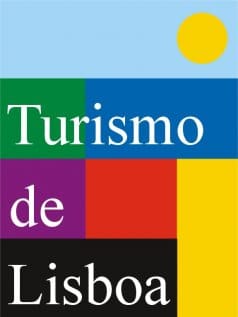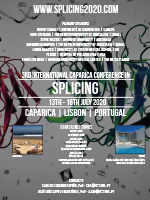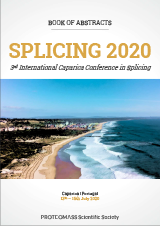Dear Colleagues and friends
It is estimated that 30% of diseases caused by mutations can be linked to splicing. Mutation of a splice site can result in site loss of function and specificity, causing insertion or deletion of aminoacids or a disruption of the reading frame. The importance of understanding and properly decoding roles governing splicing have become a fact for the research community as demonstarted by the increasing number of manuscripts devoted to this subject. Splicing 2020 intends to join in a friendly academic environment all of us working or interested in moving to this area of research. The conference will take place in summer in one of the best beach areas from Portugal, the sea village of Caparica (South Lisbon area). We aim you to present your latest results in Splicing and to join the best researchers in this area of knowledge. Please do not hesitate in contacting me should you have any suggestion to help us make of this event a remarkable one.
Yours truly
C. Lodeiro
J. L. Capelo
Conference chairs
On behalf of the organizing and scientific committee
Plenary Speakers
Benoit Chabot, PhD
Département de microbiologie et d’infectiologie, Faculté de médecine et des sciences de la santé, Université de Sherbrooke (Canada)
A novel class of CLK inhibitors that preferentially target SRSF10 and promote p53-dependent cytotoxicity on human colorectal cancer cells.
Ruth Sperling, PhD
Department of Genetics, The Hebrew University of Jerusalem, Jerusalem (Israel)
Quality control of splicing regulation.
Steve Wilton, PhD
MURDOCH UNIVERSITY (AUSTRALIA)
Therapeutic alternative splicing: applications to human inherited diseases.
Raymond Kaempfer, PhD
Biochemistry and Molecular Biology, Faculty of Medicine, The Hebrew University (Israel)
Lorna Harries, PhD
University of Exeter Medical School, Exeter (UK)
Dysregulation of alternative splicing; a new hallmark of ageing?
Yi Xing, PhD
Director, Center for Computational and Genomic Medicine The Children’s Hospital of Philadelphia (USA)
Alternative splicing in cancer transcriptomes.
Frans Cremers, PhD
Department of Human Genetics, Radboud University Medical Center, Nijmegen (The Netherlands)
Stargardt disease-associated deep-intronic variants in ABCA4 result in complex splicing defects.
KPRK Talks
John Rasko, PhD
Head of Department, Cell & Molecular Therapies, Royal Prince Alfred Hospital, Sydney (Australia)
Chonghui Cheng, PhD
Department of Molecular and Human Genetics, Baylor College of Medicine, Houston (USA)
Deconvoluting alternative splicing in breast cancer metastasis.
Keynote Speakers
Hui Li, PhD
School of Medicine, University of Virginia (USA)
Alexander Hüttenhofer, PhD
Innsbruck Medical University – Biocenter, Innsbruck (Austria)
Intronic tRNAs of mitochondrial origin act as regulators of constitutive and alternative splicing.
David Bates, PhD
Division of Cancer and Stem Cells,School of Medicine,University of Nottingham (UK)
Lucy Donaldson,PhD
University of Nottingham, School of Life Sciences, Nottingham (UK)
Diana Baralle, PhD
University of Southampton, Southampton (UK)
RNA and splicing in Genomic Medicine.
Anthony Schweitzer, PhD
Thermo Fisher Scientific, Santa Clara (USA)
Michele Mishto, PhD
Centre for Inflammation Biology and Cancer Immunology (CIBCI) & Peter Gorer Department of Immunobiology, King’s College London, London (UK)
Immunological relevance and therapeutical applications of post-translational peptide splicing.
Matthias Soller, PhD
School of Biosciences, College of Life and Environmental Sciences, University of Birmingham (UK)
Alternative splicing regulation by m6A RNA methylation in Drosophila.
Beatrice Eymin, PhD
Institute For Advanced Biosciences, INSERM U1209/CNRS UMR5309/University Grenoble Alpes, Grenoble (France)
Splice variants of the RTK family: their role in tumor progression and response to therapies.
Ihab Younis, PhD
Carnegie Mellon University Qatar (Qatar)
Targeting Deregulated Splicing in Breast Cancer.
Symposium Subjects
- RNA Splicing
- Protein Splicing
- DNA Splicing
- Alternative Splicing
- Splicing and Disease
- Splicing and Nanotechnology
- Autosplicing
- Espliceosome
- Computacional Biology of Splicing
- Translational Applications
Hotel Aldeia dos Capuchos
Be aware of cold calls from Convention Hotel Services (CHS) or from someone named Adam Max! A company called CHS (Convention Hotel Services) is calling or e-mailing attendees of conferences worldwide, claiming to work for the conference organizers and asking for credit card details to finalize the booking of accommodation. If you receive such a call or e-mail, do not give away any personal information or credit card details! None of the parties involved in the organization of SPLICING 2020 is working with CHS
We have received some alerts from participants this week regarding this email: Ehotel Services via DocuSign
If you receive such a call or e-mail, do not give away any personal information or credit card details! This problem affects many conferences, not only the PROTEOMASS BIOSCOPE conferences.
We look forward to seeing you soon.
With kindest regards
The PROTEOMASS BIOSCOPE Team



















